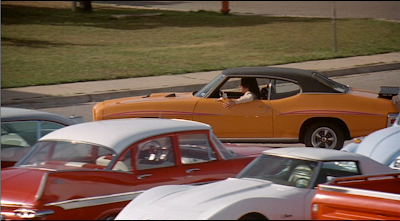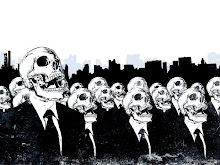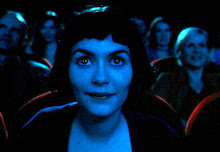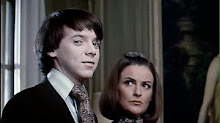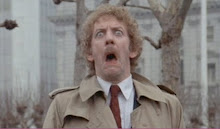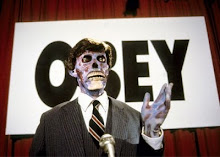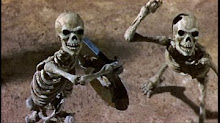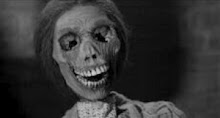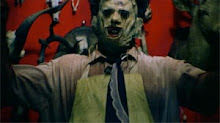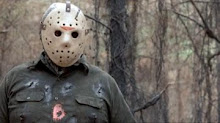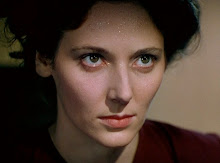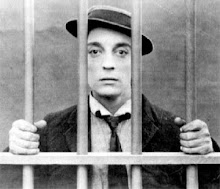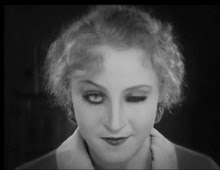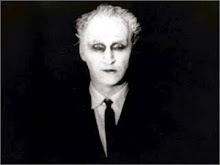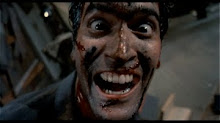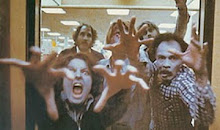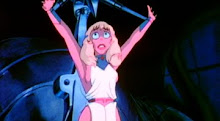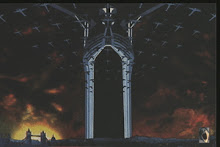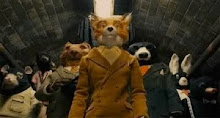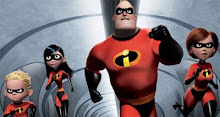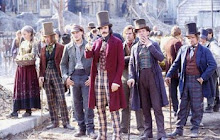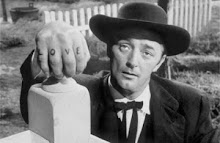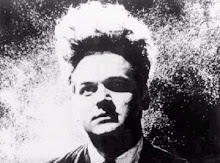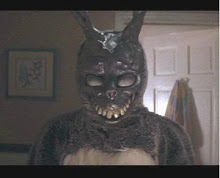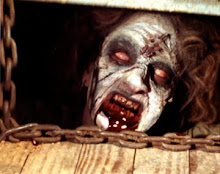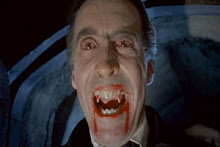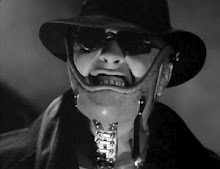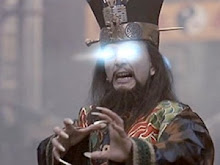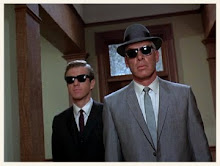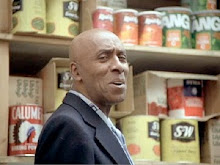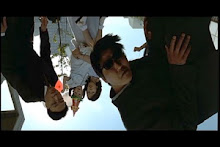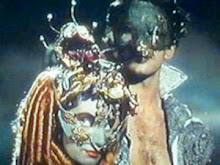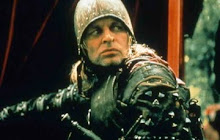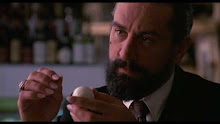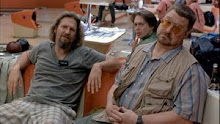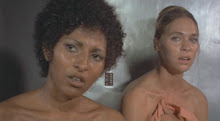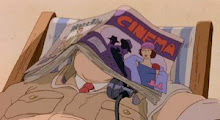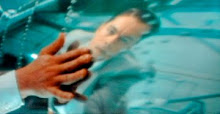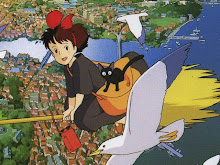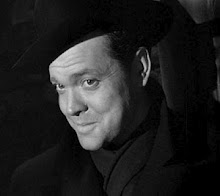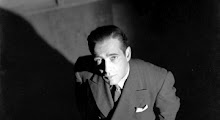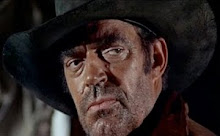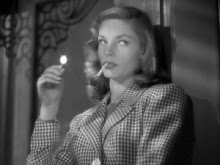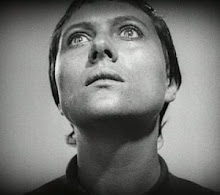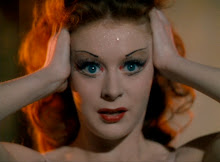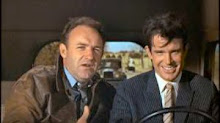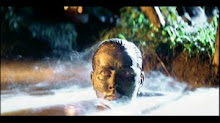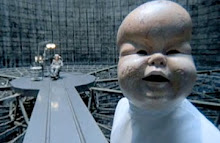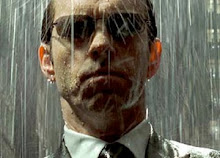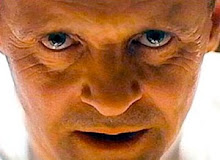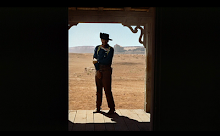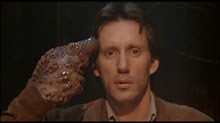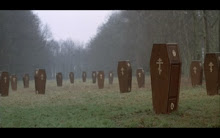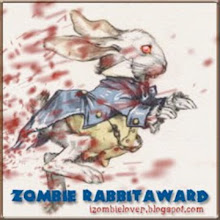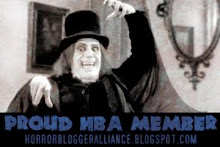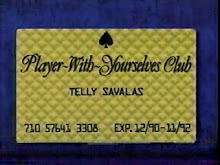I’ve never been a huge Peter Straub fan outside of his work with King. His stuff has always been just a bit too mannered for me. But his latest work
A Dark Matter
came with more recommendations than seemed humanly possible, so I figured I’d give it a shot.
The first fifty pages of A Dark Matter contain that dizzying excitement of expecting something mediocre and getting completely intoxicated instead. A pity it doesn’t last.
A Dark Matter follows a group of friends who in the sixties encountered a mystical force under the guidance of a sham guru which ended up warping the rest of their lives. In the modern day the only member of the circle who didn’t experience the encounter tries to piece together just what happened.
For all the good it does A Dark Matter has an insurmountable problem built into the book like a kill switch. Namely Straub has no idea what to do with the modern day storyline that eats up half of his book. There’s no reason for it, no real tension or even much poignancy. I could feel my eyes physically glaze over when I came upon these present day segments. They’re there for a reason, and that reason is so that Straub can go back and revisit the meadow from different perspectives without simply unmotivately doubling back in time. Yet no matter how necessary the device they sit there as ungainly as big ugly cement dividers in the middle of the narrative.
Which is a pity because Straub really did have something there in the meadow where his children gather. At its best A Dark Matter has a kind of white hot intensity to it. A monstrous vividness. Dizzying and awful (in the true sense of the word) enough to justify the gravitational pull it has on the books structure. But it remains a great three hundred page novel suffocating inside of a six hundred page one. An impressive statue with feet of clay.
…
Mike Birbiglia is a gifted comic. Blessed with the best deadpan since Steven Wright. Unfortunately he doesn’t translate to the page very well. Maybe it’s just that anything would look lacking after
Bossypants and
Zombie Spaceship Wasteland, but
Sleepwalk With Me
has all the hallmarks of an unfunny book written by a very funny man.
It’s tough to pinpoint just what goes wrong. For one thing there’s plenty of recycled material, if you’ve heard either of Birbeglia’s albums then you’re familiar with 70% of this material. And without his woozy little boy delivery the book comes off as a bit strident. There’s some good material here, including a moving chapter on Mitch Hedberg. But on the whole Birbeglia should stick to the stage.
…
Novels that capture the feeling of Adolesecense without overblown hyperbole are rare, and Jay Asher’s
13 Reasons Why
is one of the best I’ve encountered. Set in the aftermath of a suicide narrated by the dead girl herself (via cassette tapes, no
Lovely Bones style out here) it’s a haunting sparse little novel that refuses to fade after the last page is turned.
There are a few flaws, as to be expected of any first novel. The biggest is the sense of time, I didn’t realize until the closing chapters that the events Hanna was narrating were supposed to be taking place over the course of years rather than months. But this sort of complaint is paltry when you compare it to Asher’s inherent skill and sympathy with character, mood and place.
It’s a wounded book but not wounding and one that left me looking forward to reading what Asher will write for a long while.
…
Man don’t you hate it when you put off reading a book for stupid reasons and then you do read it and its awesome and you go “Man I wish I hadn’t of held off on reading that awesome book because then I could have already read it a bunch of times.”
I don’t even remember the stupid reasons for delaying this one. But man were they stupid. Savages is the best crime novel written in the last ten years. A furious hotrod of a book, that combines beat influenced prose with lean hungry plotting and a furious sense of storytelling. Savages goes from laugh out loud funny to ball clenching brutal, often in the space of a sentence. Like Hunter Thompson, James Ellroy, Jim Thompson, and Donald Westlake all stayed up on a eight day speed binge writing down the craziest shit that popped into their heads. Savages some manages to simultaneously be a balls to the wall thrill ride and a mournful epitath for our entire civilization.
I dare you to buy it and tell me that this review was hyperbole. 
PS. Oliver Stone if you fuck this up I’m coming for you Baja Cartel style.
…
Reread
Orthodoxy
before giving it as a graduation gift. It remains a fresh work, my favorite argument against materialism and determinism. By focusing on how Christianity works as philosophy instead of trying to prove the existence of God, the way most apologia does,
Orthodoxy is a work that remains vital beyond being just a tract or preaching to the converted.
It over reaches in the end, when Chesterton basically goes “You know what? Fuck Buddhism too.” Which prevents me from recommending the book to everyone. But Chesterton’s curious unwillingness to engage the eastern religions as he engaged rival western ones has always been one of his weak points. Still there is so much right in Orthodoxy that it doesn’t seem to much to give GK a mulligan.
…
Having thoroughly Trashed Harlan Ellison in my review of
Dreams With Sharp Teeth I figured it was only fair to check out
Dangerous Visions, the seminal science fiction collection he edited and which is responsible for most of what remains of his reputation.
It’s… alright. I hardly need to point out that influential and good are hardly synonymous and are often opposing forces.
I’d say roughly a third of the stories in
Dangerous Visions
hold up very well, a third just seem like mediocre stories from the era, and a third have aged extremely poorly. The problem is that it’s the bad ones that stick in your mind. Phillip Jose Farmer’s
Riders Of The Purple Wage seems like something best read after several hits of something lysergic. But even that seems like
I Robot compared to
Eutopia the horrendous shaggy dog story about a race of high tech alternate universe plundering Vikings (no really), which builds a plodding intricate mythology all building up to the punchline, that duh duh duh The HERO IS A GAY!!!! This information is delivered with the breathless satisfaction of an M. Night Shamalyan Gotcha. I’m sorry there is something terribly wrong with the imagination that finds homosexuality more shocking than dimension traveling pillaging Vikings. (There’s a strangely strong current of homophobia running through the book. Something that would be less noticeable if the authors didn’t spend their introductions talking about how open minded and free thinking they are. Including some from good ole liberal firebrand Harlan. Once again reinforcing my opinion that he is an inconsistent douche.) There are several stories just as bad.
In all fairness there are some classics here to liven things up. Larry Niven’s Jigsawman, Philip K. Dick’s Faith Of Our Fathers, and JG Ballard’s Recognition. But on the whole those who come to Dangerous Visions seeking a book rather than an artifact will leave disappointed.
…
The Crowded Earth
Another case of weird retro scifi.
This Crowded Earth
one from the “Let us talk in great tracts of exposition to each other about things we both already know.” School. Bloch’s a hell of a writer when it comes to crime, but this first encounter with his sci fi left me cold (Though I would kill for an ambitious editor to put together a decent collection of his horror work). It’s a strange, strange little book, it’s future completely realized and highly unlikely, yet written with such a zealousness that one can’t help but get a bit caught up in it.
Peeking in on the world in a midst of a population crisis (at one moment there are six billion people on the planet!) our hero has a mental breakdown and then things get weird. I dunno what to say about this one. I got it for 99 cents on my E-reader so its not like there’s a lot to lose. But you had best prepare yourself for a weird one.
Seriously it all started innocently enough. I bought a digital copy of Macabre so I could have a copy to d annotate without guilt. As well as for the new essay packaged with the latest printing. The new essay though, perhaps not worth the price of admission on its own, is very good. Proving that if King ever did want to write a sequel he’d have plenty of stuff to work with. In a scant thirty pages or so, he manages a terrific defense of The Last House On The Left Remake, puts paid to the idea that Snyder’s version of Dawn Of The Dead is subtext free, and writes the single best essay on The Blair Witch Project I’ve ever read.
He even manages to drop a couple of WTF lines, just like in the original Danse Macabre. As when he mentions “Rob Zombie’s excellent reimaging of Halloween.” Look Uncle Stevie you back up that little sentence with a couple more paragraphs and I’ll buy the book a fourth time.
The book itself is as good as ever, My original write up was going to be all about the great things that King could do with a follow up. But as that became the basis of my outline I think I’ll keep it close to the chest Thankee Sai. Suffice to say it was still a great read.
The book remains basically you hanging out with King over a beer and having an awesome conversation about everything that turns him on about horrror. The beer isn’t accidental. It’s important to remember that King wrote the book in his pre sobriety days. It’s a rowdier rougher King who shows up. And the offhand way that he dismisses some genre sacred cows (Such as I Walked With A Zombie and Planet Of The Vampires) is oddly thrilling in the era of internet based herd think.
Anyway it’s the best thing about horror that’s been written this side of HP Lovecraft’s Notes On Supernatural literature. If you care at all about the genre it will be well worth your while to shell out a few bucks for it.
Inspeaking of highly influential work, it was this Nick Hornby series that inspired the column your reading right now. So if you see him, buy him a beer, or punch him in the face, depending upon your feelings about the column.
The Polysyllabic Spree 
remains a warm literate, laugh out loud funny read. Which trust me was sorely needed by Hornby in those dark days after
A Long Way Down. I miss the column and hope that one day Hornby will take it up again. We need you Nick.
 |
| Review Copy Supplied. |
There’s not a subgenre more nightmarishly oversaturated than the young adult supernatural fiction that is currently clogging the shelves at your local bookstore. The starving publishing industry fighting over Stephanie Meyer’s leavings. No ghoul has remained unexploited in such a time and I’m sure that one day I will be unloading novels about Succubi and Mummies.
I have to imagine that trying to distinguish yourself in such a clogged market would be nightmarish, yet this is exactly what Ty Drago does in
The Undertakers
. Crafting a story whose mythos have more in common with
They Live than
Night Of The Living Dead and should appeal to any young horror fan just weaned off of Goosebumps.
If there is a problem with The Undertakers its that its target is not quite clear enough. The book is a little harsh for the juvenile crowd, but to teens raised on the brutal violence of The Hunger Games it’ll probably be a bit too held back. Still it manages to navigate the tricky terrain reasonably well and The Undertakers should make a fine gift for any Aunt or Uncle looking beyond the usual.
That is a great title. I’ve seen it work like magnets on people. You just instinctively want to know about the book behind it.
Let me save you the trouble.
My Boyfriend Wrote A Book About Me 
is a very bad book. Comedy is the art of taking pain and turning it into a weapon. It’s mental judo taking other peoples energy and diverting it so they can’t hurt you.
Hilary Winston simply doesn’t have the chops. She doesn’t divert the pain. She doesn’t have thick enough skin. She just stews in it instead of sending the events flowing towards us to be dissipated by laughter. She just comes off as brittle, priggish, vindictive and relentlessly self pitying. This is a staggeringly narcissistic piece of work, and I’m judging that on the sliding scale of narcissism applicable not just to an author but to a memoirist (the alternate joke there was, “And I’m a blogger.”) As she rolls through her checklist of people who have wronged her, you don’t laugh, you don’t even feel sorry for her, you just roll your eyes and fervently wish she hadn’t of been so… thorough.
An unremarkable talent droning about unremarkable events rarely have I been so filled with the desire to shake the person whom I was reading and scream “GET OVER IT!!!”
Infinite Kung Fu
(Review Copy Supplied)
Kung Fu seems to be in the air.
Infinite Kung Fu
is a reprinting (and completion of) a self published comic in the early aughts. It was well worth the wait. Dynamic expressive artwork coupled with an intricate but never intrusive mythology tell a great story, that drips affection and understanding from the genre.
If it ers for style over coherency a time or two too often that's merely a consquence of the works exuberance. Anyone with love in their heart for Kung Fu would be happy to have this on their shelf.
I bought
A Visit From The Goon Squad
because I needed something crisp short and literary to cleanse the pallet after Dangerous Visions. I got that and more.
When Goon Squad came out I read its jacket description of a record producer and protégée. It sounded like down market Nick Hornby and I through it on the pile assuming that it would be among the books I would read when they finally got around to inventing the eight day week.
Proving once again that the saying “You should judge a book by its cover because otherwise how else would you know?” is a really shitty saying.
A Visit From The Goon Squad uses the nucleus of its two central characters to take dizzying leaps backwars and forwards in time and horizontally across the planet, with no possibility deemed to unlikely. Not since David Mitchell’s Ghostwritten took me out and stomped me silly have I been so unprepared for and blown away by a books ambition. As deep as it is wide Goon Squad burrows into its characters and expansively paints the world they live in. It is freaking Transcendent.
Not that I’m overselling.
“Time is a goon.” A character mournfully observes near the end, but its memory that is the real mother fucker in Jennifer Egan’s world. Her cast tortures themselves because of how completely they know who they were and who they wanted to be, and the ghost of those former selves refuse to leave them. Thanks to Egan’s dexterous prose we’re able to leap right in there with them.
Unfortunately A Visit From The Goon Squad stumbles just a bit at the end. Climaxing in an overreaching final chapter which reads like a Philip K. Dick story reimagined by Andy Rooney. Yet on the whole it is a bracing piece of work that makes even the most jaded reader excited about the possibilities of fiction.
…






